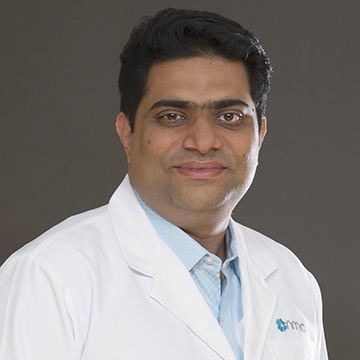Breast cancer incidences are increasing worldwide. One in eight women will develop breast cancer at some point in her life. Hence, it is very important to be aware about symptoms and how we can detect breast cancer early. Test like mammogram helps to detect breast cancer in an early stage.
If one can detect breast cancer in their early stages, it is very easy to treat and also it becomes curable. Dr. Cherian Thampy, Medical Oncologist at NMC specialty Hospital will answer several of the most common questions asked regarding breast cancer.
Q: Can physical activity reduce the risk of breast cancer?
A: Obesity and lack of activity is one of the major risk factors of breast cancer. Exercise boosts the immune system and helps you to keep your weight in check. With as little as three hours of exercise per week, or about 30 minutes a day, a woman can begin to lower her risk of breast cancer.
Q: Can healthy diet reduce Breast cancer Risk?
A: A nutritious, low-fat diet with plenty of fruits and green vegetables can help reduce the risk of developing breast cancer. A high-fat diet increases the risk because fat triggers estrogen production that can fuel tumor growth.
Q: Does smoking cause Breast cancer?
A: Smoking is a confirmed risk factor for many types of cancer. Recent research in the last year (2012) has confirmed that smoking is a contributing risk factor for developing breast cancer. Additionally, second hand smoke is also a risk factor for cancer. So if you are a smoker, help yourself in a significant way and join a smoking cessation program to help you stop. The day you stop smoking the healing can begin and each week in which you are smoke-free, you give yourself increasing advantages for a healthier life.

Q: Does family history of breast cancer add to increase the risk?
A: Although women who have a family history of breast cancer are in a higher risk group, most women who have breast cancer have no family history. Statistically only 5-10% of individuals diagnosed with breast cancer have a family history of this disease.
Q: What is breast self-examination? (BSE)
A: Give yourself a breast self-exam once a month. Look for any changes in breast tissue, such as changes in size, feeling a palpable lump, dimpling or puckering of the breast, inversion of the nipple, redness or scaliness of the breast skin, redness or scaliness of the nipple/areola area, or discharge of secretions from the nipple.
If you discover a persistent lump in your breast or any changes, it is very important that you see a physician immediately. Women should perform their breast self-exam 7-10 days after their menstrual period starts which is also when their breasts are the least tender and lumpy. If they are no longer menstruating, then she should select the same day of the month (first of the month for example) and mark it on the calendar to remind herself when to perform this self-exam.
Q: Are all breast lumps are cancerous?
A: No, 8 out of 10 breast lumps are benign. But all require evaluation to confirm that they are not cancerous.
Q: Are mammograms painful?
A: Mammography does compress the breasts and can sometimes cause slight discomfort for a very brief period of time. Patients who are sensitive should schedule their mammograms a week after their menstrual cycle so that the breasts are less tender.



